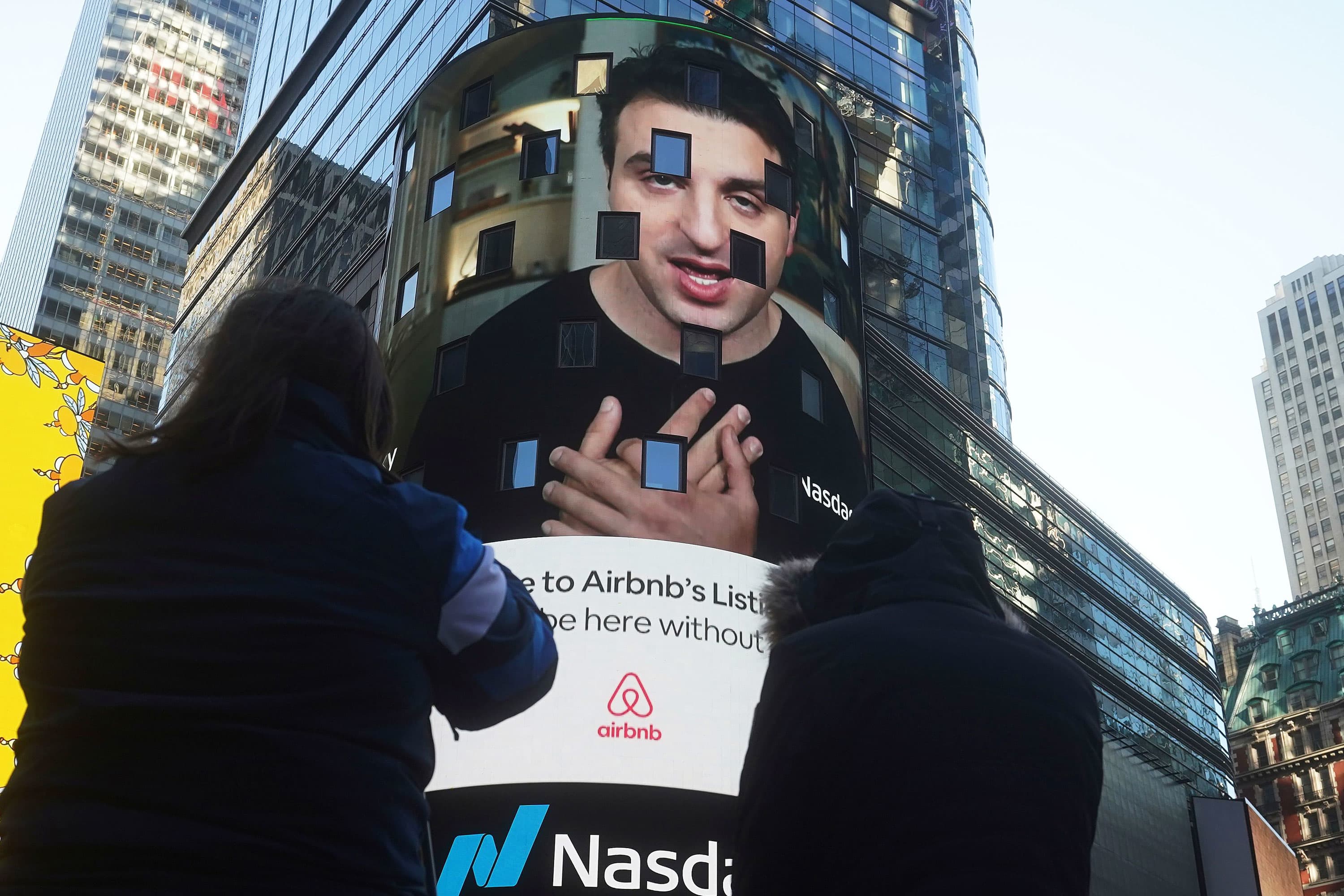
Airbnb opened at $146 per share on its first day of trading on Thursday, more than doubling the $68 per share price set for its IPO the day before. Airbnb is the latest in a wave of hotly anticipated tech IPOs during a year that has been tumultuous due to the pandemic.
The opening price gave Airbnb a market value of more than $87 billion on a non-diluted basis. Shares have continued to surge more than 115%.
That puts Airbnb past the market cap of travel giant Booking, which has a valuation of more than $86 billion. Competitor Expedia has a market cap of more than $18 billion.
Its market cap far surpasses hotel chains as well, such as Marriott and Hilton, which hold market caps of more than $42 billion and $29 billion, respectively. Delta Air Lines has a market value of about $30 billion.
The first-day surge made Airbnb the 10th best debut in 2020 based on price gain from its IPO.
Airbnb trades under the ticker “ABNB” on the Nasdaq.
Speculation that it would join one of the major indexes in the next couple years seems to be driving interest, a well-placed source told CNBC’s Leslie Picker.
The company is going public at a time when the sector has been battered by reduced-travel trends during the public health crisis. Its revenue shrank nearly 19% last quarter to $1.34 billion compared with the same period a year prior. But it still managed to turn a profit of $219 million and has had other intermittent quarters of profitability.
While travel has been lower, Airbnb managed to hit a sweet spot for those willing to venture out who preferred home stays over traditional hotels. That could change when vaccines make more widespread travel more accessible again, possibly as soon as late next year.
Airbnb CEO Brian Chesky said in an interview with CNBC’s Deirdre Bosa on Thursday ahead of the IPO that the platform is considering the changed ways travelers are looking to plan their trips now that remote work is a possibility for many.
“Now that people are coming to Airbnb, they don’t even necessarily have a destination in mind or dates, because they’re flexible. We’re all obviously on Zoom, and so people are saying, ‘I want to go anywhere 300 miles around me, what can you show me?'” he said. “Now we’re going to be getting a little bit more into the game of inspiration and matching people to the perfect home experience for them.”
Chesky also said he isn’t too concerned about valuation.
“I don’t think I’m going to worry much more than in April and May when we saw our business drop 80% in eight weeks in the middle of a pandemic,” he said.
Airbnb struggled with complaints from hosts on its platform early in the pandemic when the company granted leniency to guest cancellations, leaving hosts without payments they had come to expect. A Texas-based host filed a class-action lawsuit against the company last month, alleging Airbnb violated its contract with hosts by offering the refunds. Airbnb called the lawsuit “frivolous and without merit” in a statement at the time.
As part of its IPO, Airbnb has created an endowment fund for hosts consisting of 9.2 million nonvoting shares it set aside. Airbnb said in its IPO prospectus the fund would benefit hosts through programs and grants.
“We want hosts to share in our success, not merely for a single moment in time, but for as long as Airbnb exists in the world,” the company wrote. “We intend the Host Endowment Fund to be a long-term investment in the future of our host community, to be shaped by hosts for hosts.”
Airbnb has been named to CNBC’s annual Disruptor 50 list eight times and ranks at 41 of the 2020 Disruptor 50 companies.
WATCH: Airbnb CEO Brian Chesky on its traditional IPO and the path to profitability



